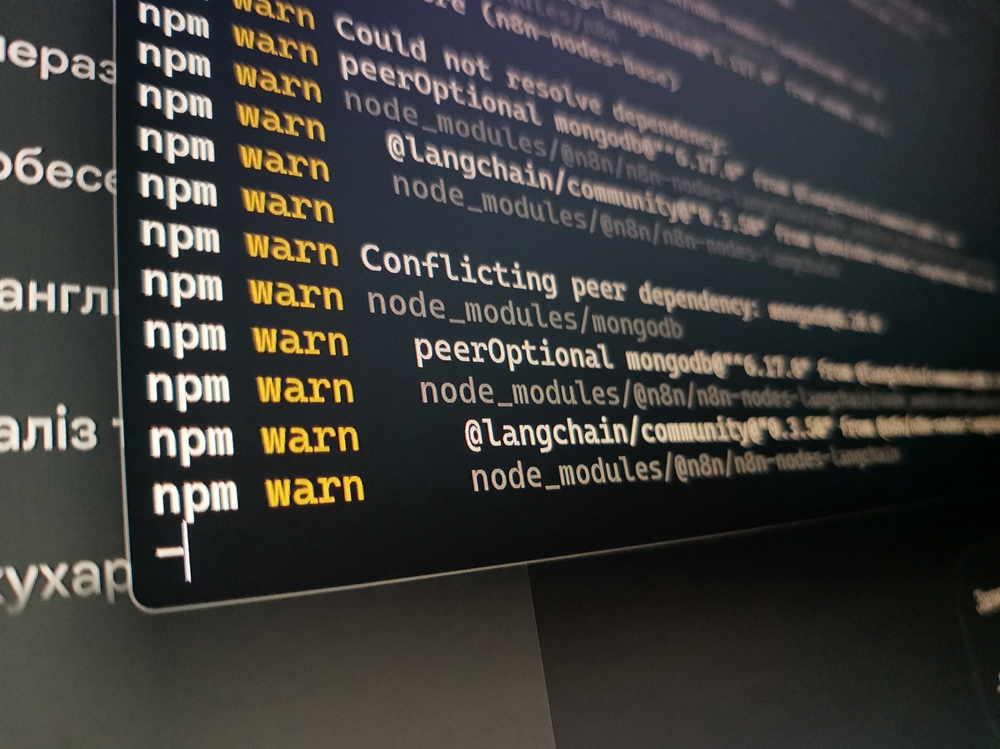#malware
#malware
[ follow ]
#cybersecurity #phishing #npm #social-engineering #supply-chain-attack #supply-chain #cryptocurrency-theft
fromZDNET
1 week agoIs spyware hiding on your phone? How to find out and remove it - fast
Spyware is one of the top threats to your mobile security and can severely impact your handset's performance if you are unlucky enough to become infected. It is a type of malware that typically lands on your iPhone or Android phone through malicious mobile apps or through phishing links, emails, and messages. While appearing to be a legitimate software package or useful utility, spyware will operate quietly in the background to monitor your movements,
Privacy technologies
fromThe Hacker News
1 week agoNorth Korea-Linked UNC1069 Uses AI Lures to Attack Cryptocurrency Organizations
The North Korea-linked threat actor known as UNC1069 has been observed targeting the cryptocurrency sector to steal sensitive data from Windows and macOS systems with the ultimate goal of facilitating financial theft. "The intrusion relied on a social engineering scheme involving a compromised Telegram account, a fake Zoom meeting, a ClickFix infection vector, and reported usage of AI-generated video to deceive the victim," Google Mandiant researchers Ross Inman and Adrian Hernandez said.
Information security
Artificial intelligence
fromFortune
3 weeks agoResearchers say viral AI social network Moltbook is a 'live demo' of how the new internet could fail | Fortune
Moltbook's AI-agent social platform exposed security failures, malware, and data leaks, revealing risks of low-oversight agent ecosystems that can enable attacks and societal harm.
Information security
fromArs Technica
3 weeks agoNotepad++ updater was compromised for 6 months in supply-chain attack
Notepad++ update/download traffic can be intercepted at ISP/TLS-intercept level, enabling redirection and tampered downloads; verify version 8.8.8+ from the official site and consider blocking.
fromThe Hacker News
3 weeks agoFake Moltbot AI Coding Assistant on VS Code Marketplace Drops Malware
Moltbot has taken off in a big way, crossing more than 85,000 stars on GitHub as of writing. The open-source project, created by Austrian developer Peter Steinberger, allows users to run a personal AI assistant powered by a large language model (LLM) locally on their own devices and interact with it over already established communication platforms like WhatsApp, Telegram, Slack, Discord, Google Chat, Signal, iMessage, Microsoft Teams, and WebChat.
Information security
fromTheregister
1 month agoTech support detective solved crime by checking the carpark
"A floor manager responsible for production asked me to fix his PC, which was so slow he could literally make a coffee in the time between double-clicking an icon and having the program open," Parker told On Call. The manager's PC was only a year old and ran Windows XP, a combo that at the time of this tale should have made for decent performance.
Information security
Information security
fromThe Hacker News
1 month agoThreatsDay Bulletin: AI Voice Cloning Exploit, Wi-Fi Kill Switch, PLC Vulns, and 14 More Stories
Attackers increasingly use legitimate code-signing certificates and cloud services to conceal malware, while Apple partners with Google to use Gemini to power a personalized Siri.
fromTechzine Global
1 month agoMicrosoft is making Teams more secure starting today: here's what's changing
Starting today, Microsoft is making it more difficult for cyber attackers to infiltrate organizations via Teams. A new update now blocks dangerous file types and malicious URLs, unless companies explicitly change the default settings. The new features were already known, but will activate automatically today for organizations that have not tampered with the default settings. Companies with customized configurations will not notice the change; their settings will remain intact.
Information security
Information security
fromSocial Media Explorer
1 month agoHow Spam Filtering Protects You from Phishing and Malware - Social Media Explorer
Spam filtering protects inboxes by using layered checks—sender reputation, content and technical analysis—to block phishing, malware, and other malicious emails before delivery.
Information security
fromwww.mercurynews.com
2 months agoConsumer tip: Watch out for this package delivery' scam
Scammers send fake package notifications urging clicks or payments to install malware or steal personal and financial information—verify delivery status only through carriers' official channels.
Information security
fromThe Hacker News
2 months agoResearchers Find Malicious VS Code, Go, npm, and Rust Packages Stealing Developer Data
Malicious VS Code extensions infected developer machines with stealer malware that captures screens, credentials, and exfiltrates data to an attacker-controlled server.
Information security
fromThe Hacker News
2 months agoNorth Korean Hackers Deploy 197 npm Packages to Spread Updated OtterCookie Malware
North Korean threat actors published 197 malicious npm packages delivering OtterCookie/BeaverTail malware that establishes C2 and steals credentials, clipboard, keystrokes, screenshots, and wallets.
Information security
fromThe Hacker News
3 months agoThreatsDay Bulletin: 0-Days, LinkedIn Spies, Crypto Crimes, IoT Flaws and New Malware Waves
Cyber threats are rapidly evolving as criminals exploit browser extensions, smart devices, social platforms, and novel malware while governments and companies intensify countermeasures.
fromArs Technica
3 months agoGoogle will let Android power users bypass upcoming sideloading restrictions
As Google begins early access testing, it has conceded that "experienced users" should have an escape hatch. According to Google, online scam and malware campaigns are getting more aggressive, and there's real harm being done in spite of the platform's sideloading scare screens. Google says it's common for scammers to use social engineering to create a false sense of urgency, prompting users to bypass Android's built-in protections to install malicious apps.
Information security
fromThe Hacker News
3 months agoMalicious VSX Extension "SleepyDuck" Uses Ethereum to Keep Its Command Server Alive
In the latest instance detected by the enterprise extension security firm, the malware is triggered when a new code editor window is opened or a .sol file is selected. Specifically, it's configured to find the fastest Ethereum Remote Procedure Call (RPC) provider to connect to in order to obtain access to the blockchain, initialize contact with a remote server at "sleepyduck[.]xyz" (hence the name) via the contract address " 0xDAfb81732db454DA238e9cFC9A9Fe5fb8e34c465," and kicks off a polling loop that checks for new commands to be executed on the host every 30 seconds.
Information security
fromPCWorld
4 months agoThis popular 'privacy browser' is actually tracking users and stealing data
According to a security report from Infoblox, in cooperation with the United Nations Office on Drugs and Crime, the China-focused Universe Browser is advertised as a safe and private way to bypass censorship and web blocks. It has a specific use case for would-be online gamblers. But just underneath its surface, the browser is recording the user's location, routing all traffic data through servers in China, installing keyloggers, and changing network settings.
Information security
fromThe Hacker News
4 months agoNorth Korean Hackers Lure Defense Engineers With Fake Jobs to Steal Drone Secrets
Some of these [companies' are heavily involved in the unmanned aerial vehicle (UAV) sector, suggesting that the operation may be linked to North Korea's current efforts to scale up its drone program," ESET security researchers Peter Kálnai and Alexis Rapin said in a report shared with The Hacker News. It's assessed that the end goal of the campaign is to plunder proprietary information and manufacturing know-how using malware families such as ScoringMathTea and MISTPEN.
Information security
fromThe Hacker News
4 months agonpm, PyPI, and RubyGems Packages Found Sending Developer Data to Discord Channels
Webhooks on Discord are a way to post messages to channels in the platform without requiring a bot user or authentication, making them an attractive mechanism for attackers to exfiltrate data to a channel under their control. "Importantly, webhook URLs are effectively write-only," Socket researcher Olivia Brown said in an analysis. "They do not expose channel history, and defenders cannot read back prior posts just by knowing the URL."
Information security
fromZDNET
4 months agoAI is making cybercriminal workflows more efficient too, OpenAI finds
OpenAI has published research revealing how state-sponsored and cybercriminal groups are abusing artificial intelligence (AI) to spread malware and perform widespread surveillance. (Disclosure: Ziff Davis, ZDNET's parent company, filed an April 2025 lawsuit against OpenAI, alleging it infringed Ziff Davis copyrights in training and operating its AI systems.) AI has benefits in the cybersecurity space; it can automate tedious and time-consuming tasks, freeing up human specialists to focus on complex projects and research, for example.
Information security
fromTechzine Global
4 months agoOpenAI reports growing misuse of AI by states and criminals
OpenAI has intensified its efforts to combat the misuse of artificial intelligence. In a new report, the company reveals that it has dismantled several international networks in recent months that were using its models for cyberattacks, scams, and political influence. The analysis shows how malicious actors are becoming increasingly sophisticated in their use of AI, while OpenAI is simultaneously expanding its defense mechanisms.
Artificial intelligence
Information security
fromIT Pro
5 months agoHackers are disguising malware as ChatGPT, Microsoft Office, and Google Drive to dupe workers
SMBs in Europe and parts of Africa face malware and PUAs disguised as trusted tools, necessitating stronger employee training, authentication, patching, and secure software sourcing.
Information security
fromIT Pro
5 months agoMobile app security is a huge blind spot for developer teams - 93% are confident their applications are secure, but 62% reported breaches last year
Organizations overestimate mobile app security readiness despite widespread breaches, accelerated release pressures, and frequent malware, data loss, and credential-theft incidents.
fromThe Hacker News
6 months agoMalicious Go Module Poses as SSH Brute-Force Tool, Steals Credentials via Telegram Bot
Cybersecurity researchers have discovered a malicious Go module that presents itself as a brute-force tool for SSH but actually contains functionality to discreetly exfiltrate credentials to its creator. "On the first successful login, the package sends the target IP address, username, and password to a hard-coded Telegram bot controlled by the threat actor," Socket researcher Kirill Boychenko said. The deceptive package, named "golang-random-ip-ssh-bruteforce," has been linked to a GitHub account called IllDieAnyway (G3TT), which is currently no longer accessible.
Information security
fromThe Hacker News
6 months agoNoodlophile Malware Campaign Expands Global Reach with Copyright Phishing Lures
The Noodlophile campaign, active for over a year, now leverages advanced spear-phishing emails posing as copyright infringement notices, tailored with reconnaissance-derived details like specific Facebook Page IDs and company ownership information.
Information security
[ Load more ]

























